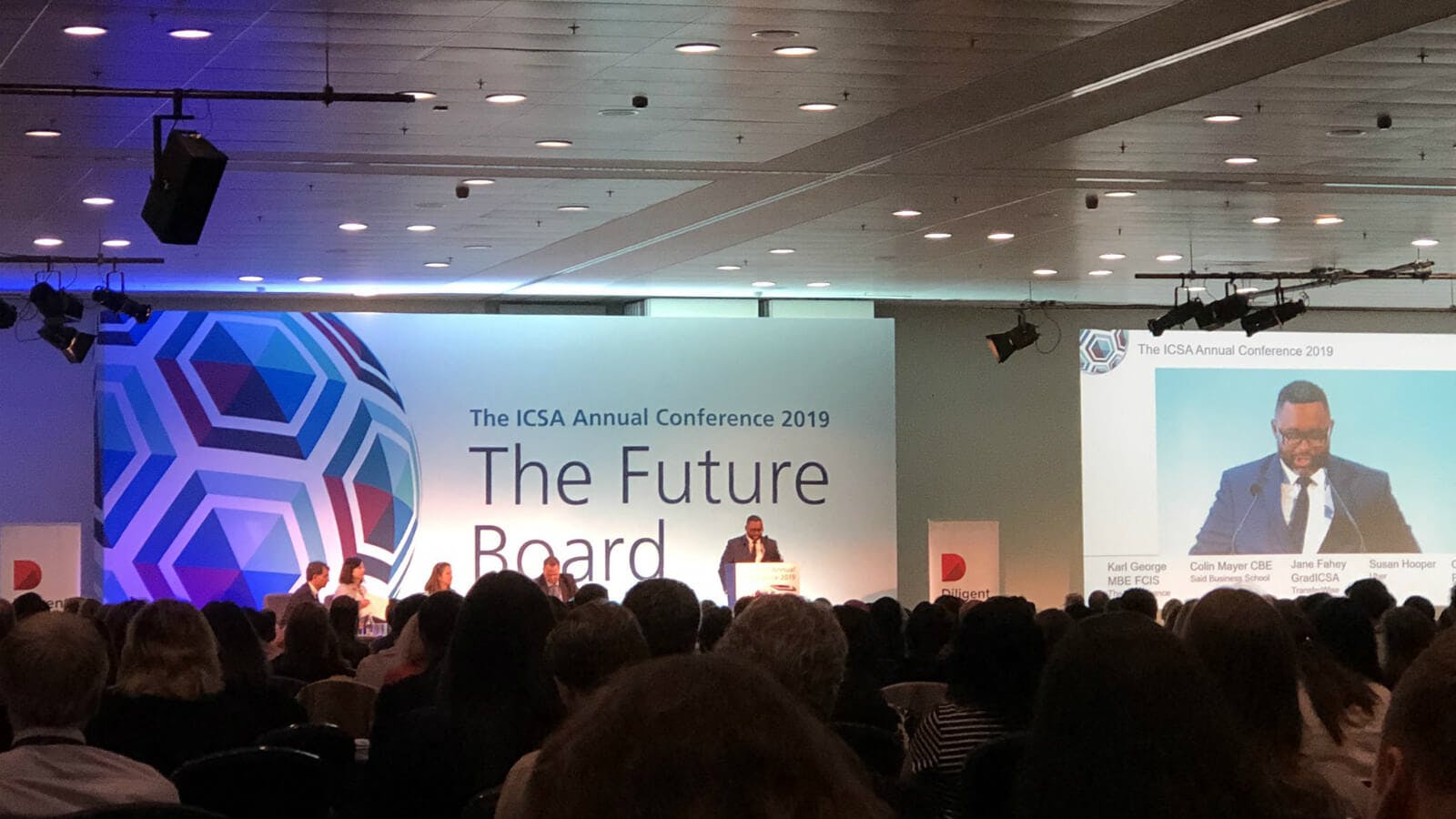
The ICSA conference asked is this the future of the board?
Hundreds of board members gathered at London’s Excel exhibition centre last week for the annual ICSA conference. Anna Tobin reports on its key findings.
The Institute of Chartered Secretaries and Administrators (ICSA) - the Governance Institute conference 2019 was aptly titled the Future of the Board. And discussion at the two-day event focused on how technology, cultural change and climate change will impact on the boardroom. These are all themes that would never have been thought about even as recently as the end of the last century, when profit was the be-all and end-all of commercial boards and control of income was largely the focus of third-sector boards.
While profit and income are still key performance indicators (KPIs) for boards, the ICSA conference highlighted that the new KPIs of cultural change, purpose and sustainability should be given even higher importance.
“This notion of thinking about purpose is a key question that boards need to think about going forward and as part of that it’s the responsibility of the board and directors to put purpose above profits,” said Colin Mayer CBE, Peter Moores Professor of Management Studies at Oxford University’s Said Business School.
Changing thinking on board recruitment
In his introduction to the panel on Succession Planning and the Board’s Role in Nurturing Talent, Dowshan Humzah, Director & Chair of UK Advisory Board, Board Apprentice Global, introduced Nurole’s COO, Oliver Cummings as an industry disrupter. Cummings explained how Nurole was rapidly and exponentially expanding the pool of talent for boards of all shapes and sizes to draw upon.
“Across our platform we see everyone from startups to charities to big investor-backed businesses, accessing our database of 30,000 plus boardroom and C-level-ready members. This not only beats hiring by word of mouth, it naturally and organically helps to increase the diversity of boards too.
“We are seeing on the platform that you can get people with broader commercial acumen and deep expertise. We strongly believe in equality of opportunity, rather than equality of outcome. The idea that there is not enough diverse talent out there is just not true. The success of the Nurole platform is proof of that.”
With research released at the conference carried out by the ICSA: The Governance Institute, London Business School’s Leadership Institute and Elisabeth Marx Associates, showing a continuing lack of genuine diversity at the top of British business, any proactive measures to improve diversity are warmly welcomed.
Based upon comparative research with A View at the Top, which looked at the composition of FTSE 100 boards in 1996, this latest research found that although there have been improvements in gender diversity at non-executive director level, boards remain more obviously male and significantly whiter than the British population. It also showed that directors are increasing in age and have little educational or career background diversity.
“In many of the headline-grabbing areas that the initial 1996 research uncovered there has been genuine and sometimes radical change, such as the increase of female directors from 4% to 28% and international experience in the boardroom climbing from 24% to 57%,” said Professor Randall S Peterson, Academic Director of the London Business School Leadership Institute.
“In other areas, however, little has changed: a quarter of all directors are educated at Oxbridge or Harvard and the percentage of female executive directors has climbed from 1% to just 3%.”
If you are looking for non-executive director roles, Nurole's innovative recruitment platform can help.





